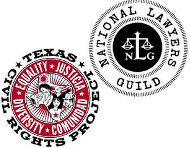9/16/2015
Civil Rights Groups Ask Supreme Court To Rethink Border RoadblocksNational Lawyers Guild and Texas Civil Rights Project file amicus brief urging US Supreme Court to rein in suspicionless roadblocks.

A pair of civil rights groups believe the US Supreme Court needs to scale back the interrogation of motorists at "border" roadblocks that are nowhere near the border. In a brief filed last week with the US Supreme Court, the Texas Civil Rights Project and the National Lawyers Guild argued that lower courts are going too far in allowing police to arbitrarily harass drivers who have done nothing wrong. They want the high court justices to overturn a February decision by the Fifth Circuit US Court of Appeals that declared a US Air Force major's reluctance to roll down his window an "unorthodox tactic" requiring further roadside questioning.
"If it is not corrected, the Fifth Circuit's new and amorphous 'unorthodox tactics' standard will leave residents in border states uniquely unprotected from Fourth Amendment violations," the groups wrote in a brief to the high court. "It will also almost certainly make matters more difficult for hard working law-enforcement officers in tense or difficult situations."
The appellate court said Richard Rynearson's constitutional rights were not violated during the March 18, 2010 roadblock that had been set up 67 miles from the border with Mexico in Uvalde, Texas (view ruling). Rynearson hopes the court will hear his appeal, a privilege only granted to a handful of cases each year. The civil rights groups believe this incident is significant enough to deserve the justices' review.
"Although concern about abuse is widespread, few cases arising from border patrol checkpoints reach this court," the groups wrote. "This case therefore presents a unique, and significant, opportunity to reaffirm the constitutional principles that apply to this increasingly important area of the law."
The Border Patrol operates seventy-one internal checkpoints within 100 miles of a border, generating dozens of complaints compiled by the American Civil Liberties Union. In Texas, a woman was strip searched, x-rayed and CT scanned after a drug dog falsely alerted at an internal roadblock. After all this, the University Medical Center of El Paso sent her a bill for $5000 in services. In Arizona, John Forrey was held at gunpoint and handcuffed after he refused to discuss his personal travel plans with agents.
"By departing from this court's precedent, the lower court's decision blurs lines that are supposed to be clear," the civil rights groups argued. "It invites officers to make subjective judgments about the orthodoxy of someone's behavior as a justification for continued detention. And it cannot help but lead to more controversies over how far an agent may stray from the purpose of a suspicionless stop when faced with a citizen who chooses to stand on his rights. Observing the clear lines and strict limits for suspicionless detentions drawn by this court will avoid that kind of subjective and impermissible line drawing."


